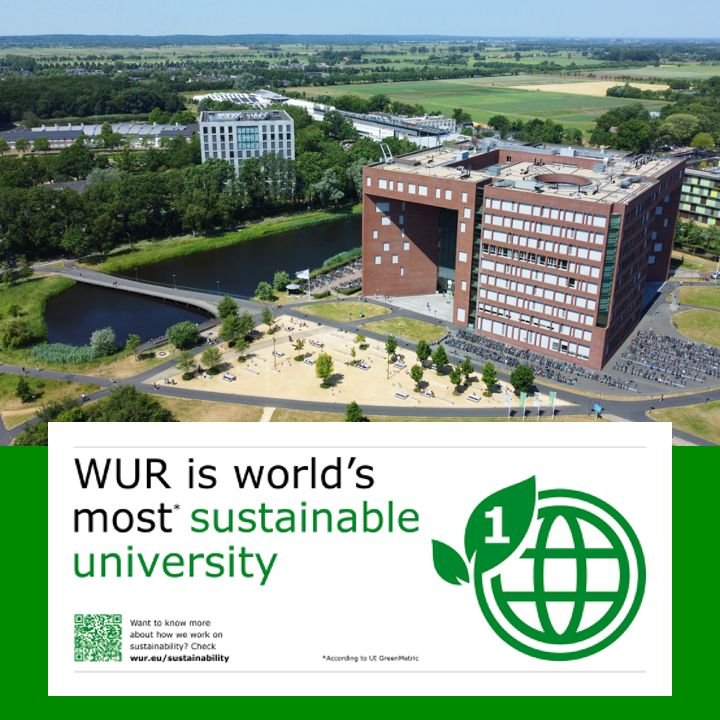
WUR Bee Research Programs: Supporting Global Sustainability, Peace, and Development
Wageningen University & Research (WUR) has launched several programs focused on the crucial role of bees in ecosystems through Bees@WUR. This initiative addresses bee health and mortality, examining how factors like diseases, pesticides, and food availability interact to impact bee populations. In light of the alarming decline in pollinators, which threatens global food security and biodiversity, WUR emphasizes the economic significance of bees, as they pollinate about 70% of crops essential for human consumption. Among its key initiatives is the BETTER-B project, a four-year effort to enhance beekeeping resilience against climate change and habitat loss. This initiative seeks to harmonize modern practices with natural processes to improve honey bee colonies' adaptation. WUR's commitment extends to collaborations that optimize bee health and pollination services, contributing substantially to the United Nations' Sustainable Development Goals (SDGs). Each project within WUR's sustainability framework explicitly aligns with these global priorities, underscoring the university's dedication to researching sustainable solutions for bee populations and the farmers reliant on their pollination services. These efforts aim to foster resilient bee systems capable of withstanding environmental challenges while continuing to deliver essential ecosystem services.

The Global Challenge of Zero Hunger
The United Nations' Sustainable Development Goal 2 (Zero Hunger) aims to end hunger and promote sustainable agriculture by 2030. Currently, 828 million people are hungry, with 349 million facing severe hunger, primarily due to conflict, climate change, poverty, and food waste. Conflict is a major barrier to achieving zero hunger, with nearly 60% of the hungriest individuals living in conflict zones, perpetuating cycles of violence and food insecurity. Climate change exacerbates hunger through extreme weather events that disrupt food access and economies. Additionally, poverty and inequality are root causes of global hunger, with declines in bee populations threatening agricultural productivity. Despite producing enough food globally, about 40% is wasted in high-income countries, while low-income countries experience significant loss during growth and storage. Malnutrition affects nearly 3 billion people in various forms, including undernutrition and obesity. The COVID-19 pandemic intensified food insecurity, reversing years of progress and pushing millions into undernourishment. The economic impacts of the pandemic have increased global poverty for the first time since 1990, highlighting the urgent need for coordinated action across sectors to achieve zero hunger and improve global food systems.

The Global Honey Deception: Understanding the Impact of Fake Honey on Bee Populations and Food Security
Fake honey is a significant issue in the global market, ranking as the third most commonly adulterated food after milk and olive oil. According to the Honey Authenticity Project, around 33% of honey could be fake, with estimates in the U.S. suggesting up to 70% may be fraudulent. This counterfeit honey is often produced by diluting real honey with syrups like high-fructose corn syrup, making detection challenging. The economic impact on genuine honey producers is severe; they struggle to compete with cheaper fake products, often leading to financial instability and a shift towards alternative income sources. Bees play a crucial role in pollinating approximately 75% of the world’s food crops, with their services valued at around $15 billion annually in the U.S. However, the phenomenon of Colony Collapse Disorder (CCD) poses a serious threat to bee populations, characterized by the sudden loss of worker bees while the queen and brood remain. Causes of CCD are complex, involving factors such as the Varroa mite, emerging diseases, pesticide exposure, and management-related stress. Addressing the issue of fake honey is vital not just for honey producers, but also for the sustainability of our food systems reliant on bee populations.

Wageningen University's Collaboration with Businesses for Sustainable Development: The Path to Zero Hunger
Wageningen University & Research (WUR), located in the Netherlands’ Food Valley, is a leading institution in life sciences, particularly in agriculture. Established in 1876, it is renowned for its commitment to sustainability, ranking as the world's top university for agricultural sciences and sustainable agriculture for several consecutive years. WUR’s mission focuses on balancing human needs, the environment, and the economy, aligning with the United Nations’ Sustainable Development Goals. WUR actively collaborates with businesses, governments, and civic organizations to translate research into practical applications that benefit society. These partnerships provide companies with access to cutting-edge research and sustainability expertise, fostering innovation and enhancing competitiveness. Businesses can engage with WUR through various avenues, including research projects, the Wageningen Data Competence Center, and tailored professional courses from Wageningen Academy. WUR's commitment to impactful research is further exemplified in its vibrant Wageningen Campus, which serves as a hub for innovation, bringing together companies, educational institutions, and research facilities. This collaborative framework aims to develop solutions for global challenges, ultimately contributing to a more sustainable and resilient future.